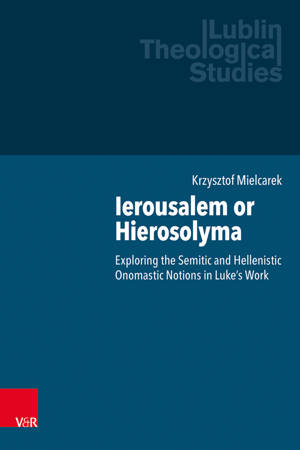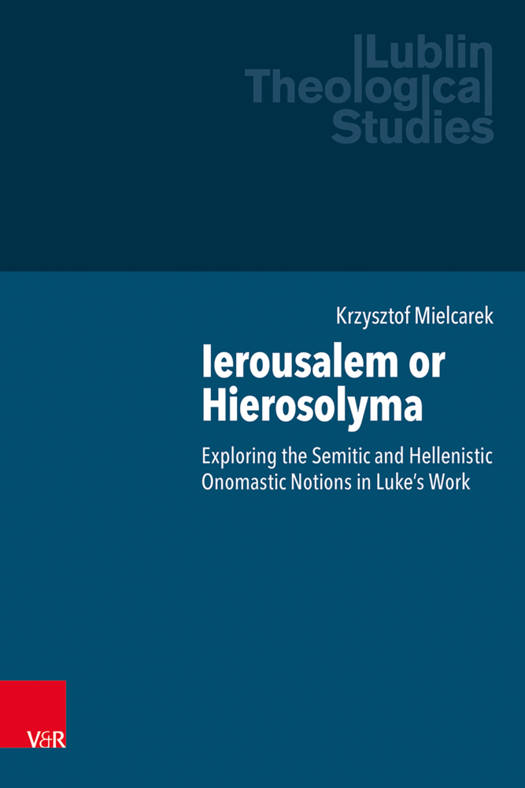
- Afhalen na 1 uur in een winkel met voorraad
- Gratis thuislevering in België vanaf € 30
- Ruim aanbod met 7 miljoen producten
- Afhalen na 1 uur in een winkel met voorraad
- Gratis thuislevering in België vanaf € 30
- Ruim aanbod met 7 miljoen producten
Zoeken
Ierousalem or Hierosolyma
Exploring the Semitic and Hellenistic Onomastic Notions in Luke's Work
Krzysztof Mielcarek
€ 118,45
+ 236 punten
Omschrijving
There is no doubt that Jerusalem in the Bible is a city of great historical and theological significance. However, many modern readers are unaware that authors writing in Greek used its two names, Ierousalem and Heriosolyma. Among the few who used both names simultaneously is Luke the Evangelist. Commentators of this onomastic phenomenon have tried to explain this fact in various ways, referring to Luke's literary and theological choices or denying its meaning altogether. Krzysztof Mielcarek's monograph proposes a new view and explanation of this phenomenon in a theological-historical key. In his opinion, Luke's choices may be underpinned by his deep immersion in the world and terminological richness of the Septuagint, as well as important historical events that influenced the perception of the Holy City by the Hellenistic Jewish community and later also by the early Christians.
Specificaties
Betrokkenen
- Auteur(s):
- Uitgeverij:
Inhoud
- Aantal bladzijden:
- 288
- Taal:
- Engels
- Reeks:
- Reeksnummer:
- nr. 6
Eigenschappen
- Productcode (EAN):
- 9783525500422
- Verschijningsdatum:
- 4/12/2023
- Uitvoering:
- Hardcover
- Formaat:
- Genaaid
- Afmetingen:
- 155 mm x 231 mm
- Gewicht:
- 424986 g

Alleen bij Standaard Boekhandel
+ 236 punten op je klantenkaart van Standaard Boekhandel
Beoordelingen
We publiceren alleen reviews die voldoen aan de voorwaarden voor reviews. Bekijk onze voorwaarden voor reviews.











